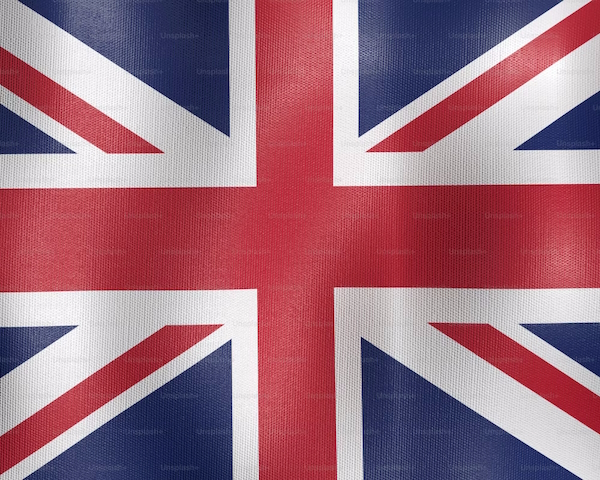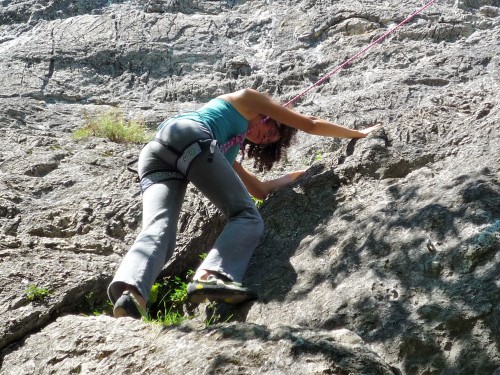
Les vêtements / Clothes
Renarques générales / General comments
Remarque générale concernant le choix des vêtements d’altitude et leur qualité d’imperméabilité
Il faut savoir qu’en altitude, lorsque le mauvais temps arrive, en général il ne pleut pas, il neige. Or, la neige, surtout quand elle est froide, ne mouille pas. En revanche il fait froid. Donc, ce qu’il faut ce n’est pas tant des vêtements qui protègent de l’humidité extérieure mais des vêtements qui permettent à la transpiration de s’évacuer pour que le corps reste sec et puisse mieux supporter le froid.
S’il pleut, c’est que l’on se trouve à une altitude moindre, donc plus prêt d’un refuge ou du fond de la vallée, et donc le fait d’être mouillé de l’extérieur a moins d’importance.
Privilégiez des vêtements de couleurs vives afin de faciliter les recherches en cas de besoin.
Un dernier conseil : toujours avoir au fond du sac une petite pochette dans laquelle seront mis, une cagoule et une paire de gants en soie, une paire de sur-moufles en nylon, une couverture de survie et une paire de lacets de rechange.
General comments on the choice of high altitude clothing
and its waterproof qualities
When bad weather arrives at altitude, it generally doesn’t rain, it snows. But snow, especially when it’s cold, doesn’t get wet. But it does get cold. So what you need is not so much clothes that protect you from the damp outside, but clothes that allow perspiration to escape so that your body stays dry and can cope better with the cold.
If it’s raining, it’s because you’re at a lower altitude, closer to a refuge or the bottom of the valley, so being wet from the outside is less important.
Choose brightly coloured clothes to make it easier to find you when needed.
One last tip: always keep a small pouch at the bottom of your bag to hold a balaclava, a pair of silk gloves, a pair of nylon overslippers, a survival blanket and a spare pair of shoelaces.
Il en va des vêtements comme il en va de la nourriture.
Chacun à ses préférences et toujours de bonnes raisons de choisir ceci plutôt que cela. En outre, n’ayant pas utilisé dans le terrain tous les types de vêtements, il ne m’est pas possible d’en faire un inventaire commenté complet. Je vais me contenter d’indiquer quelques principes de base et vous faire part de mes expériences.
Quels qu’ils soient, ils doivent être chauds, légers, solides et confortables.
The same goes for clothes as for food.
Everyone has their own preferences and there are always good reasons for choosing this over that. What’s more, as I haven’t used all types of clothing in the field, it’s not possible for me to make a complete commented inventory. I’ll just mention a few basic principles and share my experiences with you.
Whatever they are, they must be warm, light, strong and comfortable.
Les vêtements
— Vêtements de corps et de protection —
Les progrès réalisés au niveau des fibres synthétiques ainsi que les méthodes actuelles de tissage et de coupe font que le montagnard se trouve en présence d’un choix important d’habits de qualité.
Les fibres synthétiques qui composent les tissus dans lesquels sont taillés la plupart des vêtements de montagne sont hydrophobes, c’est à dire qu’elles ont une propension naturelle à ne pas fixer l’humidité. Cela donne des vêtements qui se « mouillent » plus difficilement, et surtout qui sèchent beaucoup plus rapidement que ceux confectionnés dans des tissus de fibres naturelles.
Pour les vêtements de corps, éviter les articles en coton qui retiennent la transpiration et qui sèchent très lentement. Utiliser des sous-vêtements, des polos et des pulls en fibres synthétiques. Éventuellement en laine, car la laine retient la chaleur même lorsqu’elle est humide; attention cependant aux peaux sensibles qui ne supportent pas le contact avec cette fibre.
A l’usage, je me suis rendu compte que le tout synthétique était plus efficace que la superposition de tissus synthétiques et naturels. Il faut se souvenir que la protection contre le froid est plus efficace si l’on superpose plusieurs couches fines de tissus plutôt qu’une seule couche de tissus épais.
Pour les vêtements de protection, je serais enclin à conseiller aussi l’utilisation d’articles confectionnés dans des tissus synthétiques avec une réserve cependant s’agissant des anoraks ou vestes taillés dans ces tissus qui, soit disant, laissent échapper la transpiration tout en protégeant des intempéries.
Mon expérience en la matière n’a pas été concluante. Dans des conditions d’efforts importants tels qu’on les vit en montagne la perméabilité de ces tissus à la transpiration n’est pas démontrée. En outre, l’imperméabilité à la pluie n’est pas garantie au niveau des zones de pression, ou plus spécifiquement, à l’endroit ou les bretelles du sac appuient et frottent sur le vêtement.
— pantalons —
La mode actuelle est aux pantalons longs. Si on le prend long, éviter qu’il soit trop large ou bouffant à cause des crampons qui auraient tendance à s’accrocher au tissu.
Choisir des pantalons en tissus synthétiques, de préférence en élastiss pour faciliter les mouvements, et éviter ceux en velours ou en draps qui sont lourds et long à sécher. Par temps froid, il est préférable de mettre un collant sous un pantalon fin (superposition de couches).
Éventuellement, prévoir un ensemble veste-pantalons en nylon imperméable (petit volume et faible poids), très efficace par mauvais temps, surtout s’il y a un risque de bivouac.
— Chaussettes —
Les chaussettes doivent être assez hautes pour couvrir éventuellement les genoux. Le haut des chaussettes, plié et rabattu sur la tige des chaussures peut remplacer les » stop-tout » et éviter ainsi que la neige ou les cailloux ne pénètrent. Les chaussettes en pure laine vierge sont efficaces contre le froid. Pour accroître encore la protection et le confort, on peut y adjoindre des socquettes de soie.
— Gants —
Pour les courses de neige, prévoir des gants ou des moufles en laine ou en tissu synthétique doublé de fourrure polaire. Pour l’escalade rocheuse et l’assurage se munir de gants en cuir fin à bout de doigts bien ajustés, ou sans bout de doigts (type gants de cycliste). Si l’on a oublié ses gants ou qu’on les a perdu, une paire de chaussettes peut être utilisée comme moufles.
— Coiffe —
La meilleure façon de protéger la tête du froid est de choisir une coiffe qui puisse, si besoin est, protéger les oreilles et la nuque. L’antique passe-montagne me paraît toujours être un bon choix. Il faut se souvenir que l’on perd beaucoup de calories par la tête (jusqu’à 30%). Pour avoir chaud aux mains couvrir la tête !
— Guêtres —
L’acquisition de guêtres est fonction du pantalon que l’on utilise. Si le pantalon est long, avec une fermeture efficace au niveau de la chaussure alors on peut faire une économie de poids et d’argent en n’achetant pas de guêtres. Dans le cas contraire, il est indispensable d’avoir une paire de guêtres qui empêche le neige et les petits cailloux de pénétrer dans la chaussure. Quant à moi, j’utilise principalement des mini guêtres appelées aussi « stop-tout ».
— Duvet —
Beaucoup de montagnards semblent avoir abandonnés la veste duvet sous prétexte qu’une fois mouillée elle retient peu la chaleur et est longue à faire sécher. Pour ma part, je trouve au duvet tellement d’avantages (c’est toujours le meilleur rapport efficacité/poids/volume) que je continue à mettre au fond de mon sac une petite veste duvet qui me suit partout et qui m’offre un confort de vie inégalé en altitude.
— Lunettes —
Ne pas oublier les lunettes; à verres filtrants et protège-côtés, légères, incassables et protégées par un solide étui.
Indice 4 minimum.
Transpirer dans un vêtement imperméable n’est pas mon truc.
Quand il pleut, j’utilise un petit parapluie pliable.
Ça fait sourire, mais qu’est-ce-que je suis bien !
Clothes
— Body and protective clothing —
Advances in synthetic fibres and modern weaving and cutting methods mean that mountaineers have a wide choice of quality garments.
The synthetic fibres that make up the fabrics from which most mountain clothing is made are hydrophobic, meaning that they have a natural propensity not to bind moisture. The result is clothing that ‘wets’ more easily and, above all, dries much more quickly than clothing made from natural fibre fabrics.
For outerwear, avoid cotton items, which retain perspiration and dry very slowly. Use synthetic fibre underwear, polo shirts and jumpers. Possibly wool, as wool retains heat even when damp, but beware of sensitive skin that cannot tolerate contact with this fibre.
In use, I realised that going all synthetic was more effective than layering synthetic and natural fabrics. You have to remember that protection against the cold is more effective if you layer several thin layers of fabric rather than a single layer of thick fabric.
As far as protective clothing is concerned, I’d also recommend using items made from synthetic fabrics, with one reservation, however, when it comes to anoraks or jackets made from these fabrics, which supposedly allow perspiration to escape while providing protection from the elements.
My experience in this area has not been conclusive. In conditions of heavy exertion such as those experienced in the mountains, the permeability of these fabrics to perspiration has not been demonstrated. What’s more, rainproofing is not guaranteed in the pressure zones, or more specifically, where the straps of the bag press and rub against the garment.
— Trousers —
Long trousers are currently in fashion. If you opt for long trousers, make sure they are not too wide or baggy, as the studs will tend to cling to the fabric.
Choose trousers made from synthetic fabrics, preferably elasticated for ease of movement, and avoid those made from velvet or sheets, which are heavy and take a long time to dry. In cold weather, it’s best to wear tights under thin trousers (layering).
If necessary, pack a set of waterproof nylon trousers and jacket (small volume and light weight), which is very effective in bad weather, especially if there is a risk of bivouacking.
— Socks —
Socks should be high enough to cover the knees if necessary. The top of the socks, folded over the upper of the boots, can replace the « stop-tout » and prevent snow or stones from penetrating. Pure new wool socks are effective against the cold. Silk socks can be added for extra protection and comfort.
— Gloves —
For snow races, use gloves or mittens made of wool or synthetic fabric lined with fleece. For rock climbing and belaying, wear fine leather gloves with well-fitting fingertips, or without fingertips (like a cyclist’s glove). If you have lost or forgotten your gloves, a pair of socks can be used as mittens.
— Headgear —
The best way to protect the head from the cold is to choose a headgear that can, if necessary, protect the ears and the back of the neck. The old-fashioned balaclava still seems a good choice to me. Remember that you lose a lot of calories through your head (up to 30%). To keep your hands warm, cover your head!
— Gaiters —
Whether or not to buy gaiters depends on the trousers you use. If the trousers are long, with an effective closure at boot level, then you can save weight and money by not buying gaiters. Otherwise, it’s essential to have a pair of gaiters that prevent snow and small stones from penetrating the boot. As for me, I mainly use mini gaiters, also known as ‘stop-tout’.
— Down —
Many mountaineers seem to have abandoned the down jacket on the grounds that once wet it retains little heat and takes a long time to dry. Personally, I find down has so many advantages (it’s still the best efficiency/weight/volume ratio) that I keep a small down jacket at the bottom of my rucksack, which follows me everywhere and offers me unrivalled comfort at altitude.
— Googles —
Don’t forget your goggles; with filtering lenses and side protectors, lightweight, unbreakable and protected by a sturdy case. Index 4 minimum.


